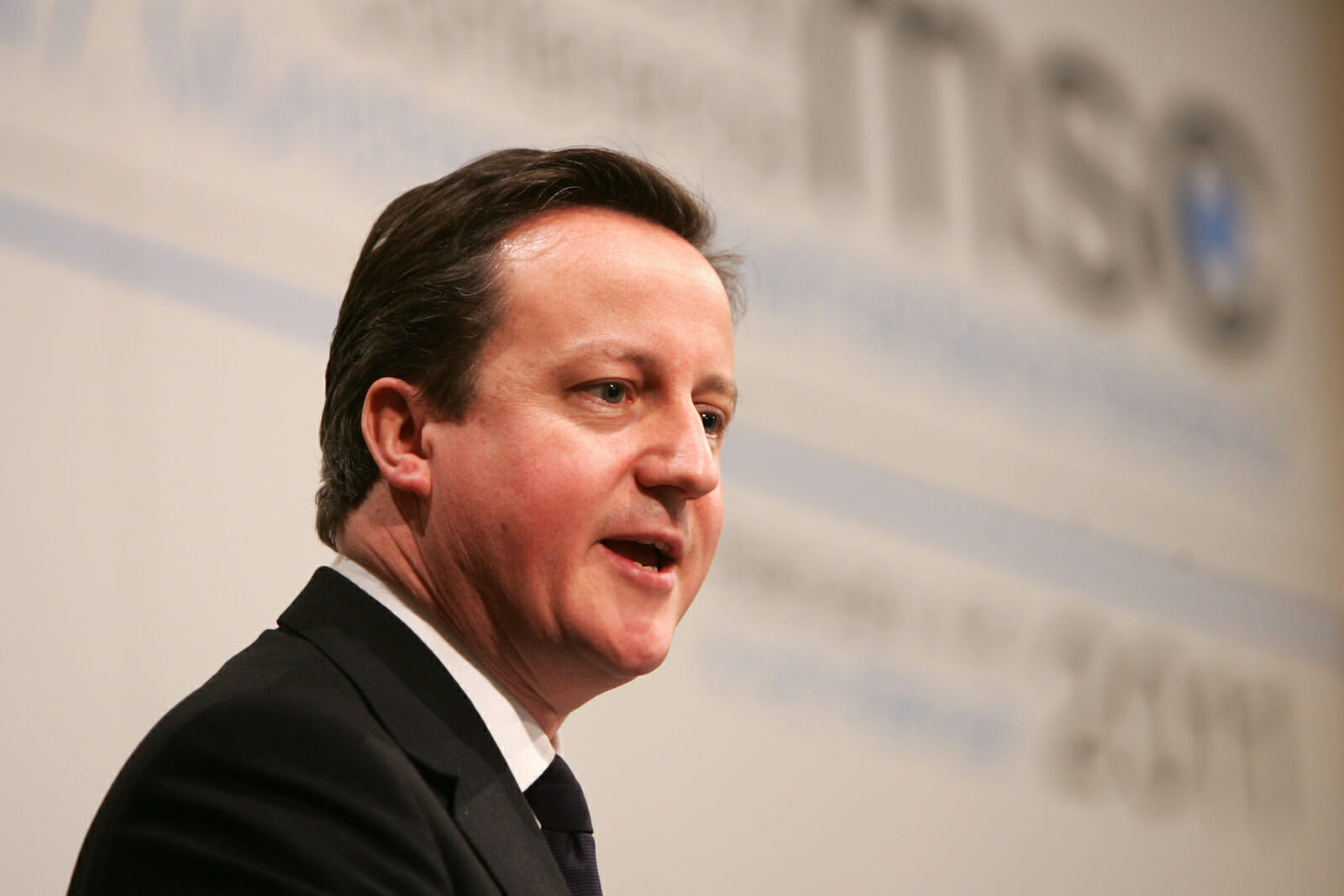
Cameron Seeks to Strengthen Middle East Ties
“It is not just about trade and investment. We are also partners in defence and security, we worked together in Libya and Afghanistan and we will be talking about all the key regional and global issues.” – David Cameron
The recent announcement that Britain and the United Arab Emirates (UAE) have signed a defense partnership, which could include military sales from BAE (BA.L), EADS (EADS: NV), and Finmeccanica (FNC.MI) indicates that Britain is seeking to strengthen economic as well as diplomatic ties with its Middle Eastern partners to facilitate regional security and to counter the growing threat of Iran’s nuclear weapons program. British Prime Minister David Cameron’s visit to the region also focused on addressing recent diplomatic dustups, which have called into question some of Britain’s energy investments in the region, specifically British Petroleum oil concessions in the UAE. British Prime Minister David Cameron’s visit to the region was intended to focus on economic and defense interests. Even so, the discussion also included the continuing violence in Syria, potentially arming the Syrian rebels, as well as effective strategies to counter perceived threats to regional stability.
Last week, Cameron and his counterparts in the UAE announced that a defense agreement had been reached. In a joint statement, the two countries announced that they had established “a defence industrial partnership” focused on enhancing collaboration regarding the Typhoon fighter jet as well as additional technologies of interest. The Typhoon, also known as the Eurofighter, is a multirole jet aircraft comparable to the US F-22 Raptor and F-35 Lightning, but it lacks significant stealth capabilities. Reports indicate that Cameron was pushing to secure a deal for at least 60 Eurofighters at a cost of nearly $9.5 billion. However, neither the UK nor the UAE indicated that a purchase order had been signed.
While Cameron’s visit was focused on defense partnerships, he likely broached the diplomatic dustup surrounding Abu Dhabi’s announcement excluding BP from a list of firms authorized to bid on a vast on-shore oil field British Petroleum has held since 1939.
The disagreement supposedly was over Britain’s crackdown on Islamic extremists. Following his visit to the UAE, Cameron headed to Saudi Arabia, where he met with King Abdullah and Crown Prince Salman to discuss potential arms sales. In addition to pursuing defense sales, Cameron was also on a goodwill tour trying to shore up relations.
A heightened sense of unease by Middle Eastern partners has been building for some time, especially in light of tacit British support for the Arab Spring. To complicate matters on the foreign policy front, the British Parliament has been calling for an investigation into the extent and nature of relations between Bahrain and Saudi Arabia. As Middle Eastern nations attempt to ensure domestic stability and prevent mass demonstrations from threatening the established power structures, government crackdown efforts have infuriated human rights activists.
In addition to diplomatic issues and a potential arms deal, leaders from Saudi Arabia and the UK discussed regional security issues including the situation in Syria. During an interview with Al-Arabiya television, Cameron stated that he would support offering Syrian President, Bashar al-Assad, safe passage out of Syria as a means to bring about a peaceful transition of power and to end the ongoing civil war.
Cameron also broached the subject of creating United Nations-backed “safe zones” to assist refugees seeking to flee the Syrian violence and find safe haven inside of Turkey. Cameron also indicated that all options must remain on the table, and he appeared to indicate that he was open to arming the Syrian rebels by suggesting, “We should not be ruling out options for the future.” The UK later clarified Cameron’s remarks and acknowledged that the European Union arms embargo prohibits arming the rebels. Even so, the clarification also stated that all options moving forward needed to be considered. Nevertheless, General Sir David Richards, the Chief of General Staff in Britain told the BBC News on November 11 that troops could be deployed to the Syrian and Turkish border to assist in a humanitarian effort.
Prime Minister Cameron’s visit to the Middle East covered an enormous amount of ground including strengthening defense relationships with key allies, ensuring economic interests, specifically oil concessions, as well as regional security issues including the deteriorating Syrian civil war and the looming Iranian threat. Personal efforts to cement defense deals by visiting heads of state is not the standard practice. Cameron’s decision to be a personal envoy or traveling salesman of sorts suggests a belief that contracts can be secured. It would be a significant win for BAE, especially in light of the fact that India decided to purchase 126 fighters from France’s Dassault in a heads contract award a few months ago.
Cameron’s effort to firm up defense partnerships and his personal lobbying for defense sales is clearly aimed at creating jobs in the UK, but it is more than that. While the UAE continues to negotiate a potential purchase of French-made Dassault Rafale jets, which maintain semi-stealth capabilities and would likely be in lieu of Britain’s Eurofighter, the push for enhanced defense ties with the UAE and others appears more pointed at the threat emanating from Iran.
Bolstering the capabilities of Saudi Arabia and the UAEs Air Force would serve as a deterrent for Iranian aggression. Iran’s threat to close the critical shipping route, the Hormuz Strait, would cost oil-producing nations such as the UAE and Saudi Arabia significantly. In turn, a modernized fleet of aircraft that could potentially be deployed if Iran attempted to create a naval blockade would be a serious factor that Iran would need to consider in advance.
Diplomatically, it also demonstrates Britain’s commitment to long-term relations with its Middle Eastern partners and sends the message that despite criticism from human rights activists, Britain remains committed to maintaining strong ties. The Syrian conflict and the potential for a spillover effect causing a wider conflict in the Middle East remains a serious concern for Saudi Arabia, the UAE, and others. Cameron’s actions, applying pressure, shows a sincere desire to bring a peaceful transition of power in Syria, but it also demonstrates that regional actor concerns are reaching a breaking point.
The final outcome of Cameron’s trip to the Middle East remains unclear. The defense partnership with the UAE was forward progress, but it did not include a purchase order from BAE, although that may well be in the offing. The UK’s efforts to reassure key allies that it remains committed was likely achieved through personal reassurances, but doubts remain. In turn, it is not clear if those reassurances were enough to persuade the UAE to allow BP back into the fold in terms of bidding on oil concessions in Abu Dhabi. Nevertheless, it seems probable that the threat against BP will cease, as one can assume it was largely a strong-arm tactic for heavy-handed UAE diplomacy. In terms of regional security, the verdict is also out. Cameron’s remarks and gestures to the Syrian regime are part and parcel of ratcheting up the rhetoric.
Ultimately, Cameron’s visit was about jobs and defense. His focus was securing economic gains through military sales and oil concessions for British enterprises while offering Middle Eastern partners the hardware to modernize their own defense systems and the assurance that the UK remains a reliable partner as well as a solid ally.

